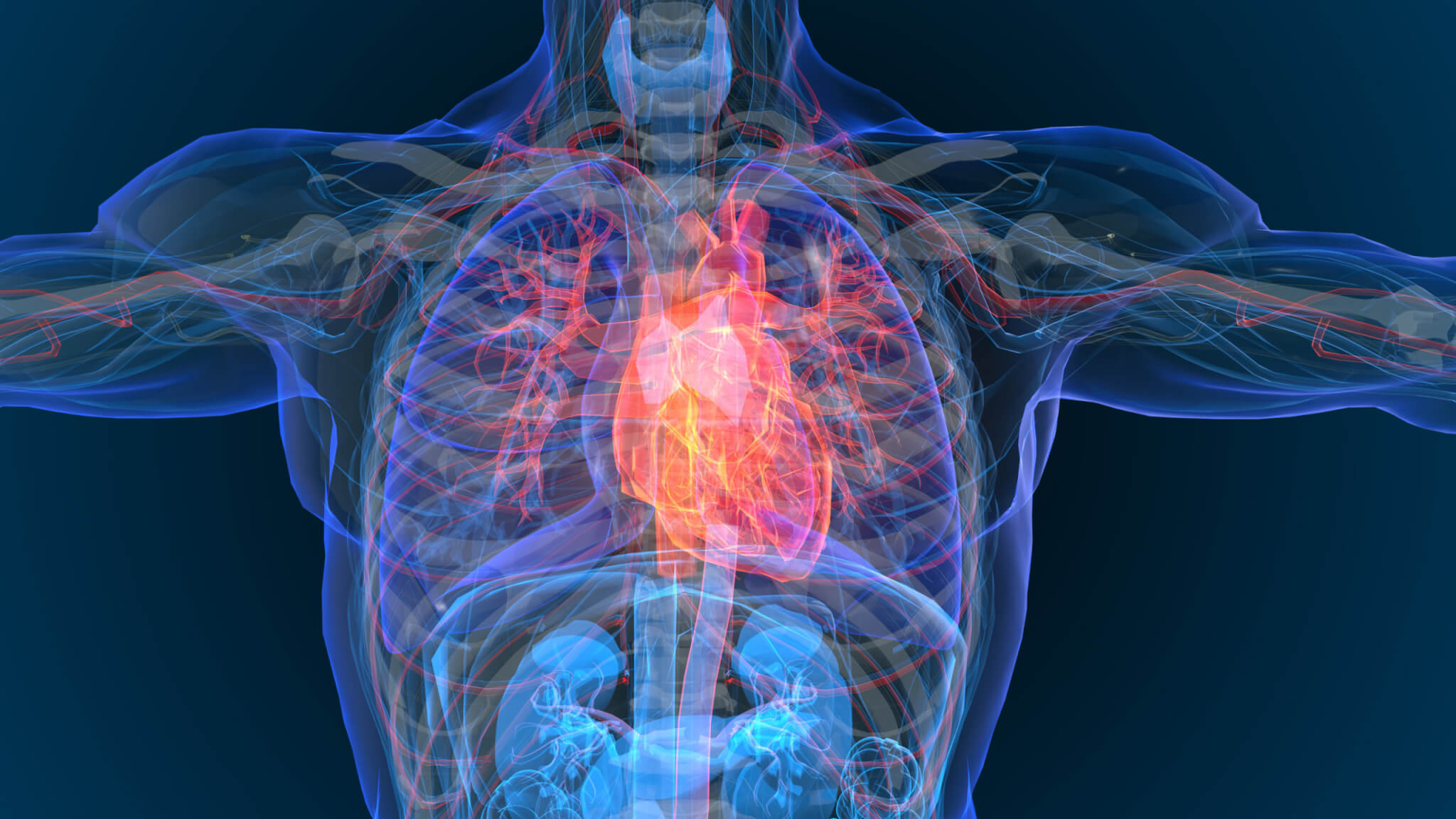PITTSBURGH — High-protein diets are viewed as essential for athletes, bodybuilders, or individuals just trying to improve muscle mass and strength. A new study, however, is making us rethink the health benefits of eating too much protein. University of Pittsburgh School of Medicine scientists reveal that excess protein in the diet is bad for the heart.
The findings provide compelling evidence that these particular diets, including those exceeding 22 percent of daily caloric intake from protein, can escalate the risk of atherosclerosis, a condition characterized by the hardening and narrowing of arteries due to plaque buildup.
Researchers embarked on a comprehensive investigation combining human trials with animal and cellular studies. The study reveals a complex molecular mechanism whereby high protein consumption leads to increased activation of immune cells implicated in the formation of atherosclerotic plaque, thereby elevating the risk of heart disease.

“Our study shows that dialing up your protein intake in pursuit of better metabolic health is not a panacea. You could be doing real damage to your arteries,” says senior and co-corresponding study author Dr. Babak Razani, professor of cardiology at the University of Pittsburgh, in a university release. “Our hope is that this research starts a conversation about ways of modifying diets in a precise manner that can influence body function at a molecular level and dampen disease risks.”
A critical aspect of this study is the identification of leucine, an amino acid predominantly found in animal-based foods such as beef, eggs, and milk, as a key player in promoting the pathways associated with atherosclerosis. This discovery sheds light on the specific components of protein-rich diets that may contribute to cardiovascular risk, opening avenues for more targeted nutritional strategies or “precision nutrition” to mitigate disease risk.
The context for this research is the growing popularity of high-protein diets, driven by widespread beliefs in their health benefits, including muscle maintenance and weight loss. However, this study challenges the notion that more protein is invariably better, suggesting that over-reliance on protein, especially from animal sources, may have unintended health consequences.

For the study, researchers conducted a series of experiments to explore how amino acids from protein influence disease processes at the molecular level. Particularly, they focused on macrophages, immune cells in the blood vessels that play a crucial role in the development of atherosclerosis. The research demonstrated that high dietary protein intake could disrupt the normal function of these cells, leading to the accumulation of cellular debris within the arterial walls and exacerbating plaque formation.
“We have shown in our mechanistic studies that amino acids, which are really the building blocks of the protein, can trigger disease through specific signaling mechanisms and then also alter the metabolism of these cells,” notes Dr. Bettina Mittendorfer, a metabolism expert at the University of Missouri. “For instance, small immune cells in the vasculature called macrophages can trigger the development of atherosclerosis.”
This study not only contributes to our understanding of the dietary factors influencing cardiovascular health but also raises important questions about the optimal protein intake for maintaining heart health without triggering adverse effects. Researchers highlight a critical gap in knowledge regarding the effects of protein consumption within the recommended dietary range and the potential for optimizing protein intake to leverage its benefits while minimizing risks.

The implications of these findings are particularly relevant in clinical settings, where high-protein diets are often prescribed to support recovery and muscle mass preservation in severely ill patients.
“Perhaps blindly increasing protein load is wrong,” explains Dr. Razani. “Instead, it’s important to look at the diet as a whole and suggest balanced meals that won’t inadvertently exacerbate cardiovascular conditions, especially in people at risk of heart disease and vessel disorders.”
As the conversation around dietary guidelines continues to evolve, this study underscores the importance of considering the molecular impacts of diet on health. With cardiovascular diseases remaining a leading cause of mortality globally, the insights from this research could inform future nutritional recommendations, aiming for a balanced diet that supports overall health without compromising cardiovascular integrity.
The study is published in the journal Nature Metabolism.
You Might Also Be Interested In:
- This 5-Day Diet That Mimics Fasting Slows Down Aging
- Volume Eating: Does the dieting trend actually work for weight loss?
- Niacin bad for you? Too much of this common B vitamin could trigger heart problems
- Your Gut Can Turn Dietary Fiber Into Allergy Relief
- Ditch The Fad Diets, Research Shows They’re A Waste Of Time

A lot of “could” in this article. Where is this study published. I’d like to read it rather than read about it. These articles reek of bs.
Absolutely nonsense what they’re on about here. I’d wager it’s a flawed and intentionally skewed study.
I too want to read this study, especially who funded it. Always follow the money…………..
ALWAYS.
Scientists and Doctors:
Eggs = bad then … Eggs = good
Carbohydrates = bad / wait we want a redo
Protein = good / Protein now bad
Sugar = bad / Sugar = bad (BUT NOT ALLLL SUGAR)
These people will never figure this out – just dropping more money into something and taking a guess thats no better than the average person at what to eat. Pretty soon theyll tell you you shouldnt eat anything.
Animal proteins lead to more heart attacks? Isn’t this common sense?
Common sense isn’t too common.
https://www.upmc.com/media/news/021924-too-much-protein
Link for more info
This isnt the study. It’s another article funded by the National Institutes of Health.
They don’t seem to define what “high” protein is. This also seems like it was a hypothetical study, I don’t see any information on actual participants who eat a high protein diet.
makes sense…in this case..too much fat…is not good for you…I agree with this study.cmon,its common sense.
Atkins put this question to rest about 50 years ago. I guess you’re getting a little short on subject material???
Yes, he put it to rest when his autopsy revealed extensive atherosclerosis.
That is absolutely fake news put out by his detractors.
So of course the control group of low protein probably ate less animal products therefore less heart disease. So really the headline is “animal products cause heart disease”.
Not protein.
That’s like saying water causes cancer because everyone that gets cancer drinks water.
So now that people have been lied to by the medical industry about fat for the last 50 years they are being lied to about protein.
Call me crazy but, when the latest food pyramid recommends eating a bowl of cereal over a rib eye steak, their is some serious lying going on.
I’m curious, did the sugar industry buy off the people that did this study like they did the medical researchers that lied about fat?
This report is incomplete, a fear monger. It doesn’t say what amounts of protein is too high, and what if you work out. I take in an average of 45 grams of protein in the morning. Then I swim a mile, walk/play with my dog etc. Then at about 3 I have my main meal and more protein averaging 30-45 grams of protein. I’ve lost Weight and my cholesterol is lower .
Is this the same clown that told us eating 6 meals a day of refined carbs was good for us? I have zero confidence that the medical establishment has ANY clue on nutrition.
Either a bad article or a bad study, one or the other. The effects protein would have on the body would be completely different depending on whether the person was in a caloric deficit, maintenance, or surplus. Which is it in this study? No way to know from this article. Is eating high protein in a caloric deficit bad? Or only when eating a surplus? No way to know, so this science is useless. My suspicion is that high protein is critical and non-harmful in a deficit and is likely to have negative consequences in a prolonged surplus. Prove me wrong. This study can’t.
I seem to remember the American Heart Association back in the late 70’s and all throughout the 80’s telling us to cut back on meats and animal protiens because it would cause heart disease. They instead recomended everyone eat a diet high in grains and therefore carbs. Thus was the beginning of the era of the epidemic of diabetes. And what does diabetes cause? You guessed it! Heart and vascular disease.
For seniors trying to stave off sarcopenia, this study is counter to recommendation of a high protein diet to maintain skeletal muscle. Personally, I prefer to maintain muscle mass.
It’s old fashioned rolled oats that send my heart into overdrive. Feels like it’s going to beat right out of my chest sometimes. Never get that terrible feeling from 100% beef.
So the article says that they figure protein would increase arterial sclerosis? Where are the stats that show that a protein diet actually ends in higher cardio events? I would also like to know the study name and the authors, so we can check the conflict of interest statement and the funding (located at the end of the study).
The last sentence of the article has a link to the study.
Lots of meat eaters in the comments in tears.
I’m willing to bet the true link is dietary animal fat; not protein.
We have science showing consuming high amounts of animal fat is unhealthy.
Show me a group with a large N eating low fat, high protein versus high fat, high protein.
Agree with this.